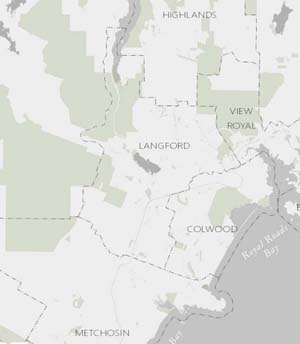Saturday June 1, 2019 ~ LANGFORD [a few updates June 3, 2019]
by Mary P Brooke ~ West Shore Voice News
West Shore Parks & Recreation (WSPR) owns and provides services through a broad collection of recreation facilities — arenas, pool, fitness areas, activity rooms, cafe, the Q Centre sports arena, tennis courts, golf course and fieldhouse, and seniors activity centre — aka Juan de Fuca Rec Centre, located in Colwood at 1767 Island Highway.
WSPR is owned by five municipalities in the west shore region whose residents it mostly directly serves: Langford, Colwood, View Royal, Metchosin and Highlands. The agreement is decades old, and times have changed. Recreation has changed. Communities have changed.

In the last five to seven years Langford has surged ahead with its own recreational footprint including Westhills Stadium (this year additionally being expanded), sports fields, the YM-YWCA, and soon a play park and rock climbing wall. With that investment under their belt, there has been agitation for a few years about the funding formula for WSPR, with Langford carrying the lion’s share.

Langford’s population has increased dramatically in the last 10 years or so, unlike for rural Highlands and Metchosin where population is low with little growth, while View Royal is not really expanding, and Colwood is slow out of the gate with its needed post-recession growth but is heading in that direction.
Until last year, a 15-member WSPR board was comprised of elected officials or community reps as appointed by their municipalities. But at the June 14, 2018 board meeting that bunch was sacked, in favour of the Chief Administrative Officers (CAOs) of each of the five member municipalities being set in place as a new temporary board arrangement that is still in place a year later.
The agreement as to who owns WSPR and how much is contributed by each municipality — as well as the governance structure — is about to expire in a few weeks (June 30, 2019). Each of the five member municipalities have been asked to approve the 2019 budget ahead of that.

There used to be six WSPR owners but Juan de Fuca (JDF) dropped out about two years ago, with JDF Director Mike Hicks saying his unincorporated area couldn’t identify a lot of usage by JDF residents.
The mayors of the five current owner-municipalities are planning to meet on June 4 to see where things stand with municipal approvals and the final wording of the owners agreement. The contentious issues are:
- in what proportion should each member municipality subsidize WSPR operations;
- what facilities and services should be offered (based on profitability combined with community need), with an eye to long term operational efficiencies; and
- what should the governance model be (i.e. who will sit on the board going forward).
The overall operating cost per capita for the five municipalities to offer the West Shore Parks and Recreation service in 2019 is $144.49 (or $147.28 if you include capital expenditure). The requisition cost per capita is $65.65.
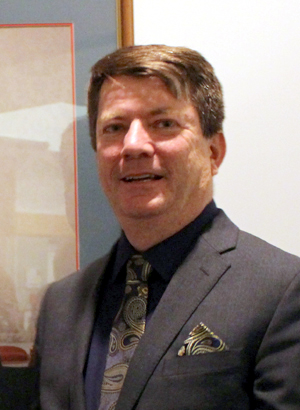
“I hope people start waking up. There are significant concerns that need to be answered with this,” said Colwood Mayor Rob Martin at the May 27 Colwood Council meeting. He added that a new agreement by June 30 that WSPR is necessary to prevent facility closure. That’s unlikely to happen given the sense of responsibility that the owner-municipalities have to keep the recreation service running. But Martin was concerned about the veto power that each municipality can have.
An agreement in principle among the owners by June 30 would carry the current scenario of CAOs running the ship for probably another six months, said Martin.
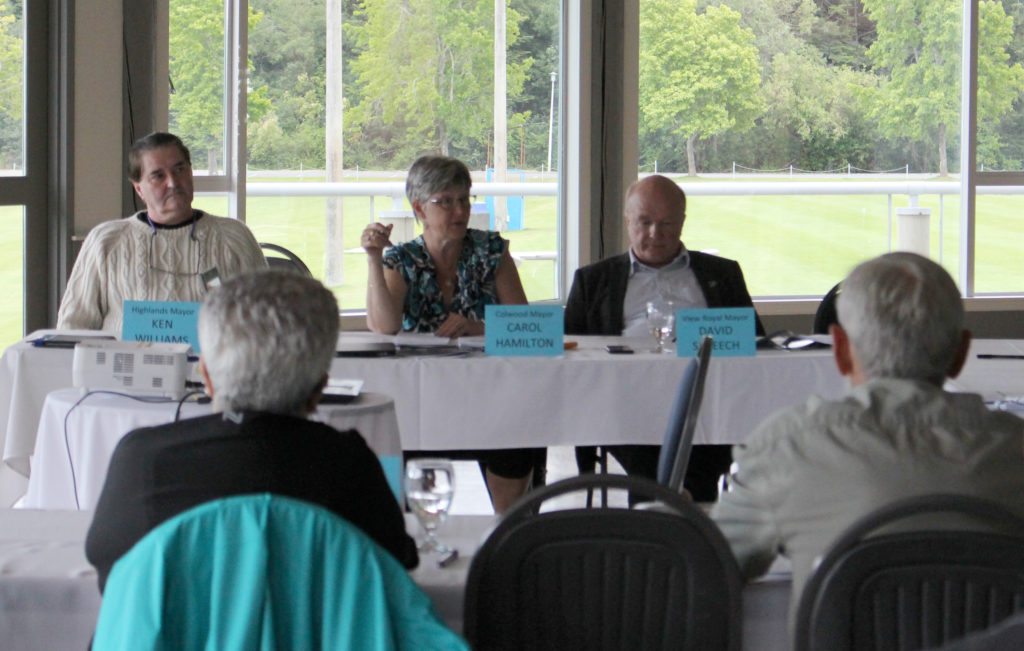
View Royal Mayor David Screech says: “I would hope that we can all recognize the urgency of the situation and the need to cooperate.” View Royal council has already approved the budget.
Meanwhile, Colwood Council approved the WSPR 2019 budget this past week, due to a line item of $150,000 for capital expenditures (out of the much larger budget of $4,947,539) being required this year for necessary maintenance and upgrades including small equipment, fitness equipment, vehicle replacement, major site maintenance and major parks maintenance. General operation expenses come in at $4.6 million for 2019.

A key feature of the 2019 WSPR budget is the application of administration costs across all programs as a way to produce more realistic numbers as to showing where profits are generated. In recent months the financial losses of the curling rink became a subject of debate with the curling community.
The curling rink was being subsidized to the tune of $11.24 per user, compared to $4.26 for the main Juan de Fuca ice rink (for hockey and family skates) and the $2.07 per user for the pool.
Actual operational revenues such as passes, user fees, and sports team bookings are less than two percent of what it actually takes to run the facility. Revenues from the large LED signage board out front on Island Highway does generate welcome revenues. Upcoming results of a CUPE staff negotiation will have further impact on the 2019 budget and future years.
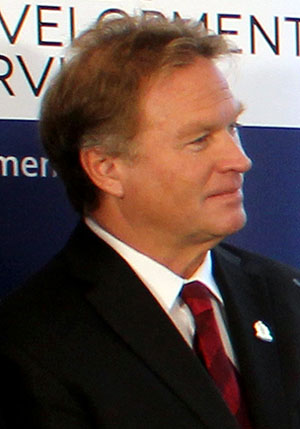
Langford Mayor Stew Young feels that the CAOs are doing a good job looking at the operation. “They are coming up with some good ideas and reviewing finances,” he said this week.
The CAOs will stay working at the WSPR board level, says Young, at least “until all the partners have a solid operational plan that we can agree on moving forward over the next 10 years”. Langford’s mayor says that process could take the rest of this year. “It’s a work in progress,” said Stew Young, who feels that CAOs are best suited to dealing with financial matters and the oversight of managers and administration of WSPR.
WSPR is a recreational service which does not operate on a business profit model, although some centres within the service (e.g. curling rink, Q Centre, fieldhouse, a proposed child care centre, and the cafe) could be better or potential revenue-generators.
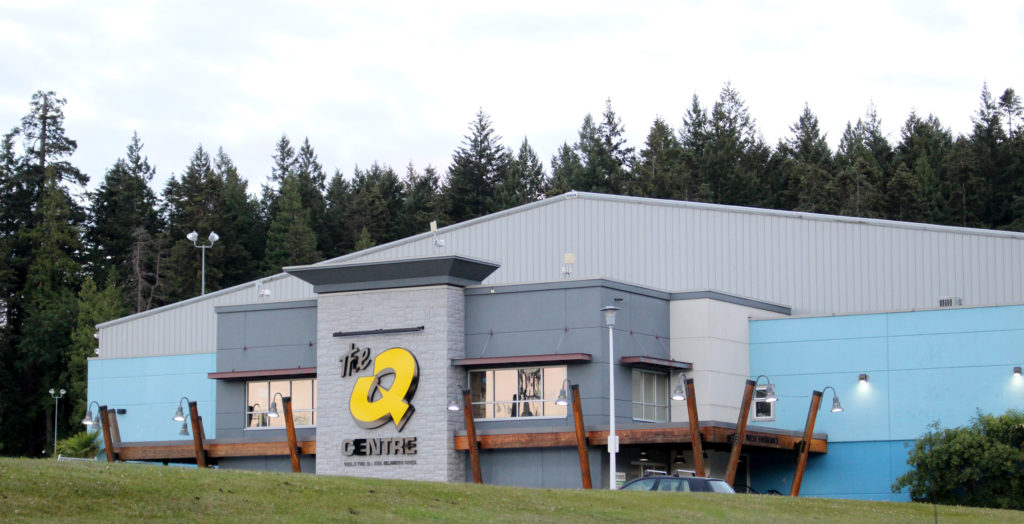
Current net revenue from programs, passes and program/team user fees in the WSPR budget is not huge (it’s $347,206 after operational costs are deducted from the $5,994,919 in gross revenues). Revenues are substantially supplemented by a ‘requisition’ process whereby the five municipalities contribute additional funds to the tune of $4,947,539. The requisition formula is based on “converted assessments” says WSPR acting administrator Sandy Clarke (which Colwood Mayor Martin describes as 50% of population count and 50% on assessed property value).
In the current formula, the City of Langford pays over $2.5 million, or about half the overall subsidy required of the five owners of WSPR (i.e. Langford, Colwood, Highlands, View Royal, and Metchosin).
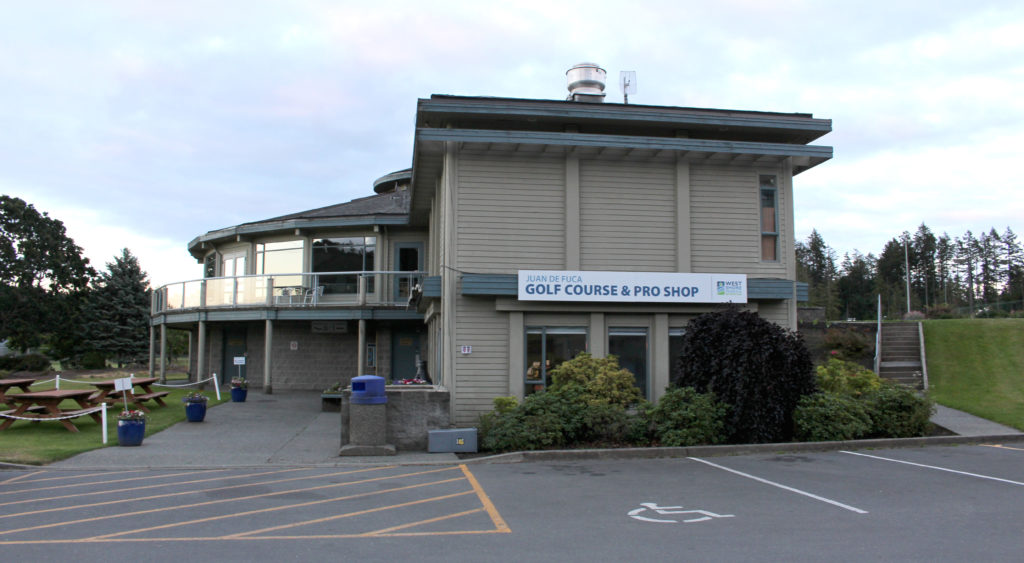
This year Langford, View Royal and Highlands are paying a bit more requisition funding due to population growth and property assessment, while Colwood and Metchosin are paying less than in 2018. The composite contribution under the current agreement (within the 2019 budget), totals to about $5 million:
- Colwood – $1,075,035 in 2019 (down from $1,110,077 in 2018)
- Highlands – $180,577 in 2019 (up from $177,304 in 2018)
- Langford – $2,576,401 in 2019 (up from $2,511,736 in 2018)
- Metchosin – $389,075 in 2019 (down from $422,538 in 2018)
- View Royal – $726,451 in 2019 (up from $725,839 in 2018)
======================== RELATED:
Curlers pitch Langford to keep rink open at West Shore Parks & Rec (April 1, 2019)
Original announcement about closing the curling rink (March 19, 2019)
Overall curling rink closure summary, an interview with project consultant Jonathan Hugget (see page 1 in the March 22, 2019 issue of West Shore Voice News)


